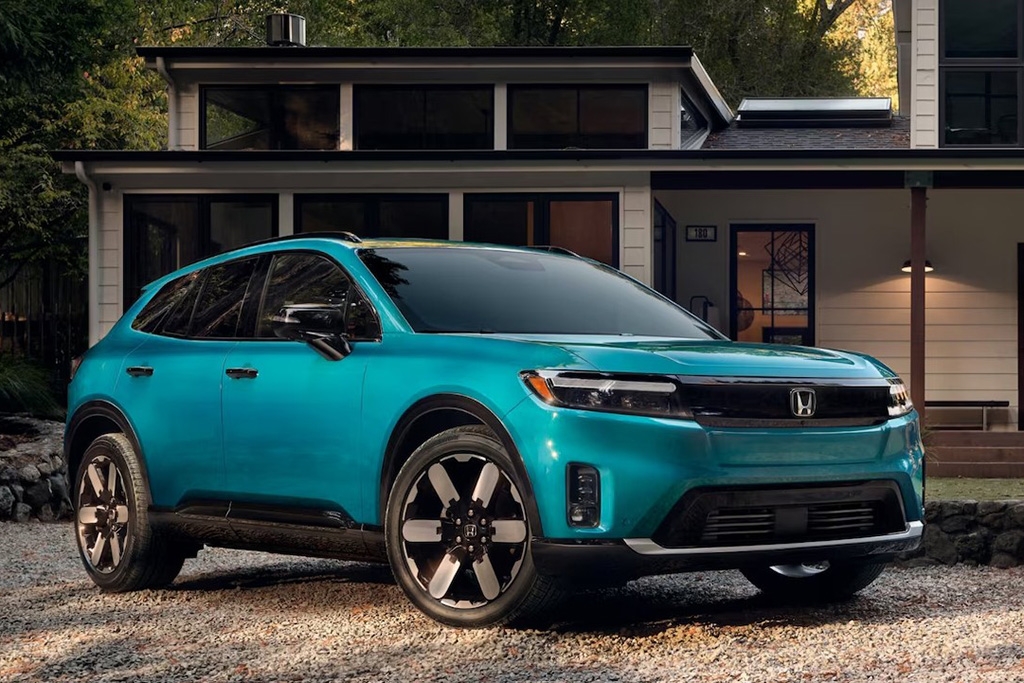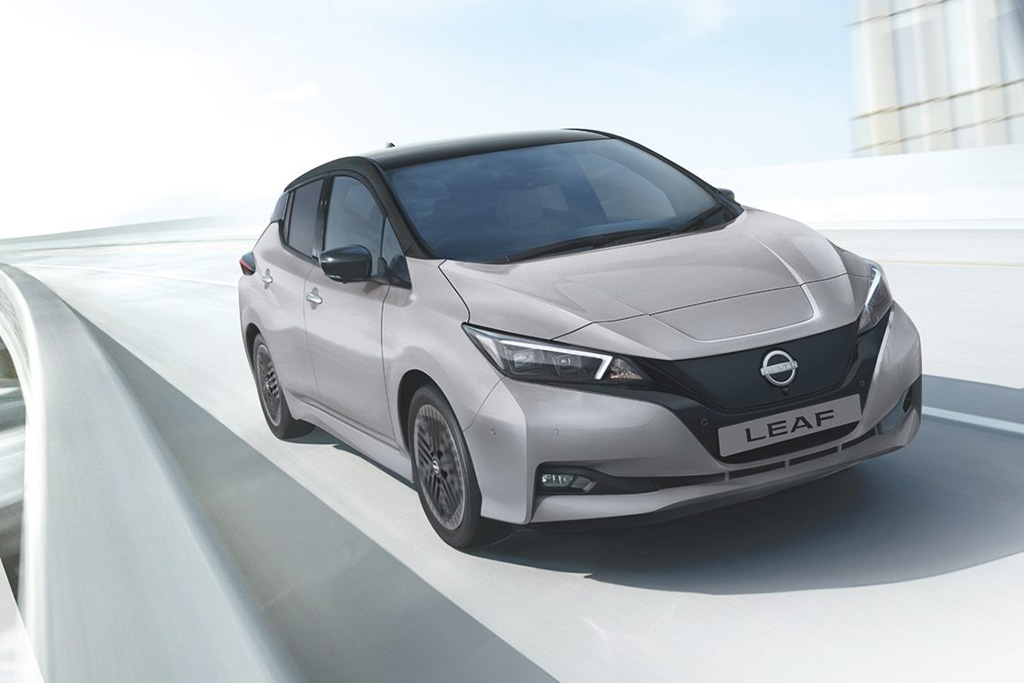Nissan and Honda announce plan to work towards merger
24 Dec 2024|364 views
Japanese automakers Nissan and Honda have signed a Memorandum of Understanding (MoU) to hold talks towards a merger via the establishment of a joint holding company, with Honda leading the new management. This also includes Mitsubishi, who already has an existing alliance with Nissan.
The move, while certainly groundbreaking, is but the continuation of a gradually deepening partnership between two of Japan’s largest names – one that has emerged as the auto industry increasingly shifts electric, and as competition from China has stiffened.
An initial collaboration began on 15 March 2024, with Nissan and Honda signing an MoU to cooperate in their EV development. Both brands then signed a further MoU on 1 August 2024 to carry out joint research in the development of next-generation software-defined vehicles (SDVs), advancing focused discussions towards a more concrete collaboration.
By standardising their production processes, both brands believe they will be better positioned to meet diverse customer needs globally, as well as to streamline their purchasing operations by sourcing parts from the same supply chain. In addition, both brands plan to improve further skill development by increasing employee exchanges and technical collaboration.
It's worth noting that while Honda and Nissan have separately made relatively successful strides in the field of hybridisation (Honda has its e:HEV technology, while Nissan is known for its unique e-POWER system), both are currently lagging behind with their battery-electric vehicles (BEVs).
Presently, Honda's rather-limited BEV lineup is spread around various markets: The Honda Prologue is only available in the U.S.A and co-produced with General Motors; the HR-V-resembling Honda e:Ny1 is present only in the U.K. and Europe; and the Honda e, while charming, isn't the sort of model with the mass-market appeal to truly be a volume-seller. Among the three, only the latter is available in Singapore - but even so, is not sold by Honda's local authorised dealer, Kah Motor.
A similar story can be said for Nissan, which threw its hat into the EV ring very early on with the Nissan Leaf, which was the best-selling EV in Europe for a few years. However, it is widely regarded that the brand failed to build on its lead and took a long time to follow up with the Nissan Ariya, which only arrived on Singapore's shores this year.
As consumer sentiment towards EVs continues to warm, non-Japanese competitors appear to be filling the vacuum in supply, with newer names like BYD and Tesla rising to the forefront alongside older ones such as Hyundai and Kia.
The trend is evident even in Singapore: BYD has remained the undisputed leader through 2024, with more than 5,000 units registered between January and November. In the meantime, new Chinese names such as GAC Aion and XPeng have performed considerably well despite only arriving this year.
While this unprecedented development may surprise those who have long seen Nissan and Honda as distinct entities, it's also worth pointing out that the larger auto industry is no stranger to brand consolidation. Stellantis Group, for instance, was formed in 2021 when Fiat Chrysler Automobile and PSA Group merged, and now stewards a whopping total of 14 brands including the likes of Peugeot, Opel and Maserati.
The latest news comes as recent reports indicate that Nissan has struggled to remain competitive, with some analysts speculating that the brand could potentially face bankruptcy as early as 2026. Hence, the merger is largely seen as a lifeline for Nissan, and will see both brands, together with Mitsubishi, become the world's third-largest automaker (based on sales), behind Toyota Motor Corporation and Volkswagen AG.
Japanese automakers Nissan and Honda have signed a Memorandum of Understanding (MoU) to hold talks towards a merger via the establishment of a joint holding company, with Honda leading the new management. This also includes Mitsubishi, who already has an existing alliance with Nissan.
The move, while certainly groundbreaking, is but the continuation of a gradually deepening partnership between two of Japan’s largest names – one that has emerged as the auto industry increasingly shifts electric, and as competition from China has stiffened.
An initial collaboration began on 15 March 2024, with Nissan and Honda signing an MoU to cooperate in their EV development. Both brands then signed a further MoU on 1 August 2024 to carry out joint research in the development of next-generation software-defined vehicles (SDVs), advancing focused discussions towards a more concrete collaboration.
By standardising their production processes, both brands believe they will be better positioned to meet diverse customer needs globally, as well as to streamline their purchasing operations by sourcing parts from the same supply chain. In addition, both brands plan to improve further skill development by increasing employee exchanges and technical collaboration.
It's worth noting that while Honda and Nissan have separately made relatively successful strides in the field of hybridisation (Honda has its e:HEV technology, while Nissan is known for its unique e-POWER system), both are currently lagging behind with their battery-electric vehicles (BEVs).
Presently, Honda's rather-limited BEV lineup is spread around various markets: The Honda Prologue is only available in the U.S.A and co-produced with General Motors; the HR-V-resembling Honda e:Ny1 is present only in the U.K. and Europe; and the Honda e, while charming, isn't the sort of model with the mass-market appeal to truly be a volume-seller. Among the three, only the latter is available in Singapore - but even so, is not sold by Honda's local authorised dealer, Kah Motor.
A similar story can be said for Nissan, which threw its hat into the EV ring very early on with the Nissan Leaf, which was the best-selling EV in Europe for a few years. However, it is widely regarded that the brand failed to build on its lead and took a long time to follow up with the Nissan Ariya, which only arrived on Singapore's shores this year.
As consumer sentiment towards EVs continues to warm, non-Japanese competitors appear to be filling the vacuum in supply, with newer names like BYD and Tesla rising to the forefront alongside older ones such as Hyundai and Kia.
The trend is evident even in Singapore: BYD has remained the undisputed leader through 2024, with more than 5,000 units registered between January and November. In the meantime, new Chinese names such as GAC Aion and XPeng have performed considerably well despite only arriving this year.
While this unprecedented development may surprise those who have long seen Nissan and Honda as distinct entities, it's also worth pointing out that the larger auto industry is no stranger to brand consolidation. Stellantis Group, for instance, was formed in 2021 when Fiat Chrysler Automobile and PSA Group merged, and now stewards a whopping total of 14 brands including the likes of Peugeot, Opel and Maserati.
The latest news comes as recent reports indicate that Nissan has struggled to remain competitive, with some analysts speculating that the brand could potentially face bankruptcy as early as 2026. Hence, the merger is largely seen as a lifeline for Nissan, and will see both brands, together with Mitsubishi, become the world's third-largest automaker (based on sales), behind Toyota Motor Corporation and Volkswagen AG.
Latest COE Prices
December 2025 | 2nd BIDDING
NEXT TENDER: 07 Jan 2026
CAT A$109,501
CAT B$115,102
CAT C$77,003
CAT E$119,000
View Full Results Thank You For Your Subscription.





















